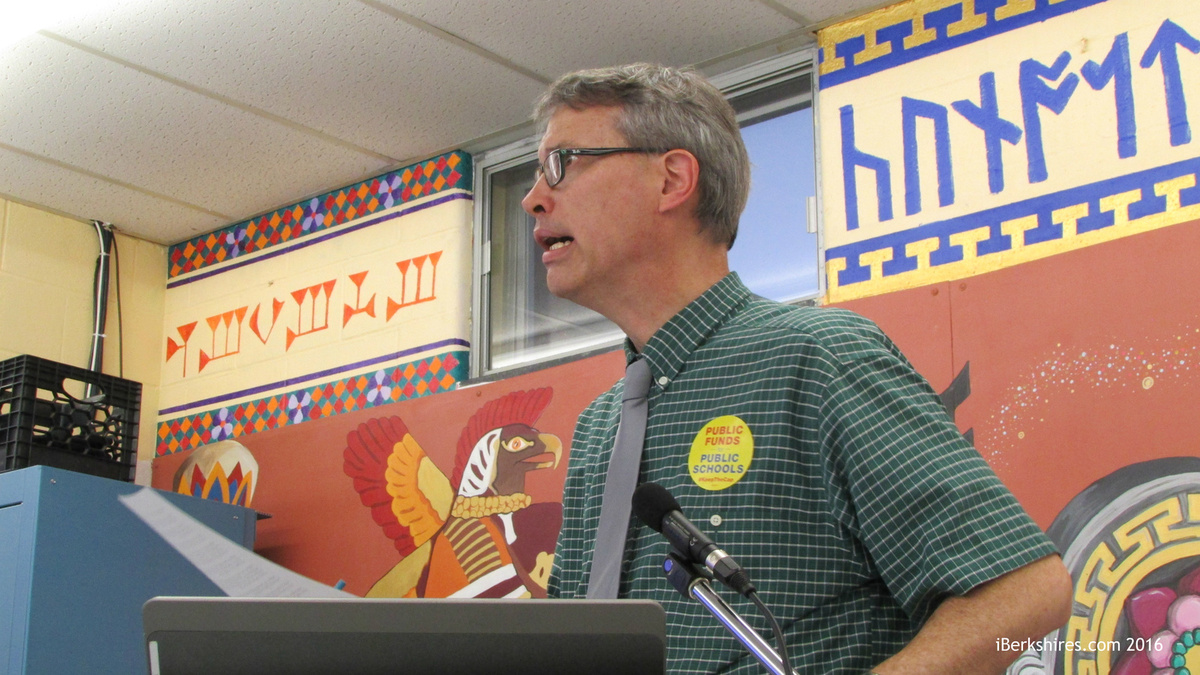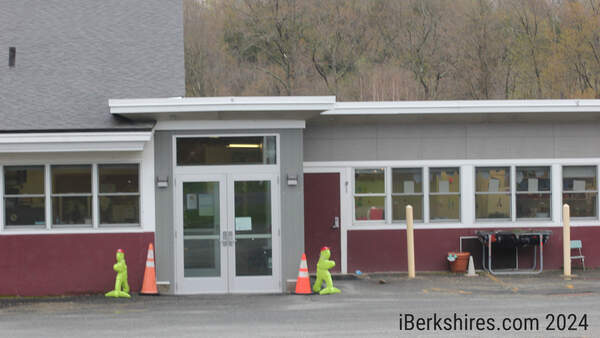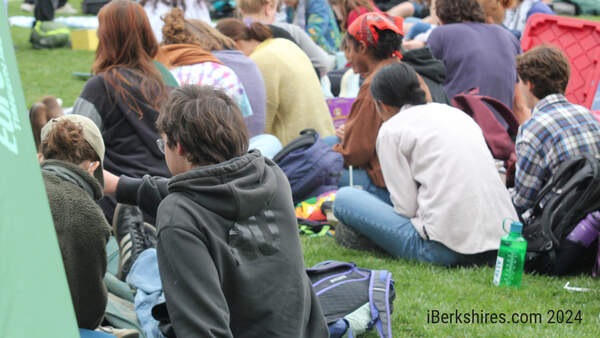
Mount Greylock School Committee Passes Anti-Charter School Resolution
WILLIAMSTOWN, Mass. — A divided Mount Greylock Regional School Committee voted Tuesday to join a long list of school committees around the commonwealth voicing opposition to a November ballot initiative that seeks to raise the cap on charter schools.
Teacher Lyndon Moors asked the committee to endorse a resolution drafted by the Save Our Public Schools campaign that urges voters to vote no on Question 2 on Nov. 8 — or when early voting gets under way in their town.
Moors told the the committee that the pro Question 2 effort is heavily funded and driven by out-of-state interests.
"There is unending stream of TV ads in favor of question No. 2," Moors said, referring to the Boston, Worcester and Springfield television markets. "They're put on mostly by the same organization that put on the swift-boat ads in the John Kerry campaign, which raises questions about their veracity."
Moors said the group in favor of raising the charter school cap is spending $20 million on the campaign. In May, the Boston Globe reported that the state's largest teachers union, the Massachusetts Teachers Association, "approved more than $9 million to fight" Question 2.
Moors emphasized to the committee members that unlike the body he was addressing, charter school boards of directors do not answer to local taxpayers.
"The first issue is local control," he said. "Looking around, you're all parents. As you know, most charter school boards are not locally elected. They're appointed. There's a different governance system."
And, Moors said, the Department of Elementary and Secondary Education, which is supposed to exercise oversight on the charter schools, has been lax — holding traditional public schools to a higher standard.
In the end, the committee voted 4-1-2 to endorse the resolution.
Committee members Steven Miller and Chris Dodig both abstained after indicating during the discussion that they did not have enough information to adequately weigh the pros and cons. Committee member Richard Cohen, who disclosed that he formerly worked for the county's only charter school, the Berkshire Arts and Technology Charter Public School in Adams, said he thought the resolution's rhetoric unfairly maligned schools like BArT.
"I've seen specific examples where BArT made changes that pulled other districts forward," Cohen said. "In Northeast Berkshire County, schools have not always provided good options for students. … Not only has BArT provided another option, it has raised standards.
"At BArT Charter, less than 10 percent of families had any member who went to college. At BArT, you can't graduate unless you've applied to and been accepted to a college. The whole ethos of that school is to raise expectations — not only to students there but to the community as a whole."
Committee member Wendy Penner also expressed concerns about the language in the resolution that was heavy on negative perceptions about charter schools. And she suggested that the committee could amend the resolution to delete some of the "whereas" language, an approach that Moors said would work for him.
The committee passed a modified resolution
Updated on Oct. 20 at 7:30 a.m. to reflect the fact that the committee did approve changes to the resolution to delete some of the "whereas" passages.
Tags: ballot measure, charter school, MGRHS, resolution,















